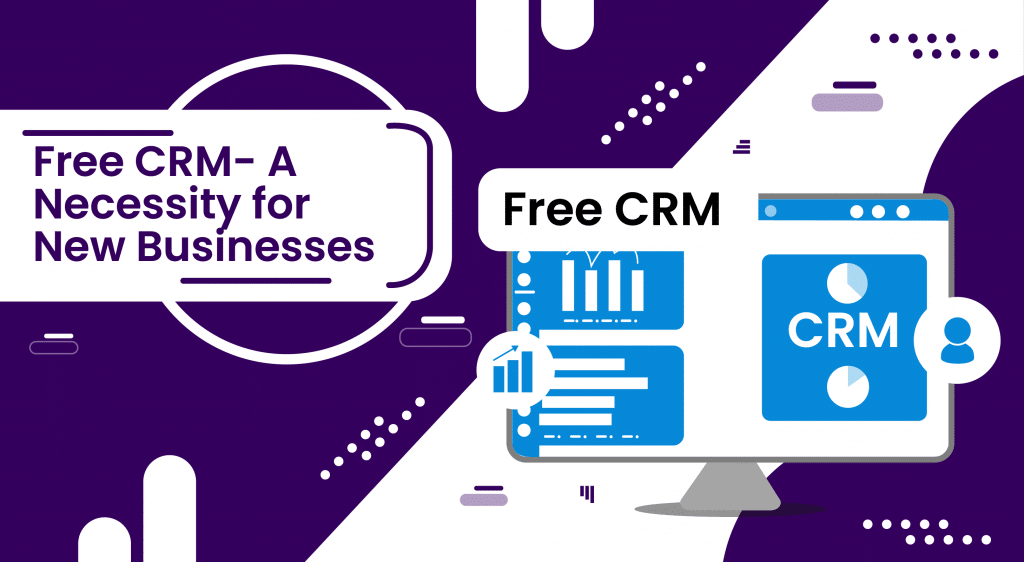Customer relationship management platforms are phenomenal tools that empower businesses across all sectors to handle customer relationships well. Essentially, incorporating such a tool helps businesses to streamline data related to leads, customers, opportunities, quotes, deals, and order status. Centralizing all this data helps teams get powerful insights to generate effective customer experiences and streamline operations.
The manufacturing industry has seen great evolution in the past several years and CRM allows companies to be more organized, ensure customer happiness, and sell more products. In this tool, let us dissect the significance of CRM for manufacturing companies. We will find out the top 5 reasons why manufacturers need an effective CRM platform. However, let us quickly brush up on the basics.
What Is CRM?
CRM is an abbreviation for the term called customer relationship management. It is a broad concept and requires efficient methodologies and tools to streamline all the interactions with present and future customers. A CRM tool organizes sales processes, manages contacts, and automates marketing. Essentially, with a CRM platform, sales team has a better view of customer data and personalize their interactions with the customers throughout the customer lifecycle.
Top Reasons Why Manufacturing Companies Need CRM Software
The significance of CRM for manufacturing organizations is multifaceted. Let us check out its main advantages-
Effective Sales Performance and Close Rates-
A CRM platform is an effective solution that empowers you to unify all sales data at a centralized place. This implies that your sales team will be able to handle all leads, accounts, opportunities, and communications within one system. With CRM software, companies can ensure that there are no missed deals or opportunities due to data being disorganized or being lost in shuffle.
Well-documented data related to client or data also help in establishing mutual respect, trust, and understanding. All of this enhances your chances of converting a lead to a customer or reselling your product to an existing client. Ultimately, an organized sales process and centralized platform leads to more productivity, performance, and profitability.
Improved Brand Loyalty and Customer Satisfaction-
A CRM platform is not just a helpful tool for managing potential customers. It is a valuable solution for handling the relationship a business has with the current clientele. Having access to more data about your customers can allow you to communicate more consistently with your existing customers in a personalized manner. It is an effective way of strengthening relationships and improving the possibilities of repeat purchases.
Manufacturing companies will be able to handle all client inquiries as all orders and client details will be available in the CRM. A strong customer support and well-nurtured customer relationship is vital for higher customer satisfaction.
Better Prediction of Demand-
A CRM for manufacturing companies is an effective solution to predict future sales growth. It can help you to forecast future deals, market trends, and customer expectations. With a streamlined and real-time sales forecast, you can allocate and schedule your resources earlier. You can plan proactively rather than reacting to customer orders. A CRM tool helps manufacturing organizations to streamline their production planning, ensure faster pace of production, and timely deals.
Better Visibility in Supply Chains-
A manufacturing CRM allows you to understand and handle your supply chain much better. You can create enhanced visibility, also called “smarter supply chain”, by combining predictive insights with real-time data. You can get a bird’s eye view on all aspects like order processing, inventory management, operations, distribution chains, and warehousing. An intelligent supply chain is essential for better handling inventory levels and production schedules. This will also equip you with sufficient knowledge while procuring and purchasing materials.
Implementing advanced sortation systems can significantly enhance order accuracy and efficiency in manufacturing operations. When paired with a robust CRM, these systems streamline fulfillment and boost overall productivity.
Production Quality Improvements-
A CRM can give you detailed insights into how customers perceive your products. It will also give you more knowledge related to consistency and quality. Having direct access to customers’ feedback and perceptions gives manufacturing companies sufficient knowledge for ensuring modifications to products and services. In this way, they make their services more aligned with market requirements. CRM makes communication with customers smoother. Smooth communication means more feedback from the customers, which directly results in faster and effective improvements in the product.
Top Features to Look for in CRM for Manufacturing
To get the most out of the CRM platform for manufacturing business, it is important to make sure that businesses have all the features you need:
Contact Management:
As a manufacturing organization, you must regularly communicate with new leads, customers, and prospects. This is why contact management is one of the best features manufacturers should look for in a CRM. To stay in touch with current customers and consistently reach out to leads, you need to access their contact information. Essentially, a CRM for manufacturing tools must have a centralized place to store all contact details of leads and customers.
Lead Management:
To enhance the sales of the product, you must successfully handle your incoming leads. A CRM solution with effective tracking capabilities and lead management will allow you to recognize, score, and track every lead that moves into your pipeline until they convert. Hence, with the lead management feature in the CRM, you will never forget to follow up on a crucial lead. You will easily identify the most valuable leads and concentrate your efforts on them to maximize conversions.
Pipeline Management:
With the pipeline management feature, you can comprehensively view your sales pipeline and gather insights. Using this feature, you can see the present stage of every prospect in the sales funnel, check out the total number of leads in the pipeline, recognize the points where you have generated most leads, etc. You can identify interactions that converted the lead into customers or interactions that discouraged leads to drop out of the pipeline.
Sales Management:
You might have to spend some time with your leads and encourage them toward making a purchase. However, it is a worthwhile task that cannot be ignored. The capabilities of the CRM to optimize your workflow and automate sales can make this process a lot easier for you. Apart from collecting data regarding leads and customers, this feature can also perform other tasks like:
- Send personalized and automatic drip campaigns and email messages to foster leads and upsell present customers.
- Get automatic alerts whenever a prospect or lead takes a particular action, like request form for product information.
- Follow up automatically on leads who have not responded in a while with personalized messages.
Email:
It is important for the manufacturing business to stay in regular touch with its leads and customers. Now, if you have hundreds of leads and thousands of customers, manually typing emails can become a time-taking and monotonous task. Make sure that your selected CRM comes equipped with email capabilities. This will help you automate, streamline, and enhance your lead-nurturing messages and email marketing. For instance, the email features of a fully featured platform allow you to segment your email list, send personalized emails as per the audience's interests, send automatic and personal email drip sequences, and gain access to an extensive list of pre-built email templates.
Analytics and Reporting:
Manufacturing companies need to consistently improve their operations and strategies to drive continuous growth. However, organizations must know which current processes are driving the best results. Thus, to get these insights, companies can use manufacturing CRM with reporting and analytics features. Using these features, you can figure out which messages and strategies are creating the impact, and which ones are not.
CRM reporting features allow you to view your current sales performance, analyze lost deals, predict future sales, see the sources of your leads, etc. Moreover, you can also visualize your performance with effective charts and presentation-ready reports.
Conclusion
Nowadays, customer data is one of the pillars that allows manufacturing companies to thrive in the market. Leveraging CRM for manufacturing processes enables manufacturers to improve productivity, streamline operations, and maximize conversion rate. A good CRM solution helps manufacturers to centralize all customers and leads data, automate emails and follow-ups, and streamline analytics and reporting. In future, CRM will become an indispensable tool for manufacturing companies due to rising competition and the need for automation.
Also Read
Best CRM For Architecture Firms With Benefits and Pricing
The Role of CRM in Insurance: Core Benefits You Must Know
Author’s Bio

Hello, I am Ashish Dwivedi. I am a core CRM developer with 15+ years of experience in delivering efficient CRM solutions that drive business growth and efficiency. I specialize in creating extensions for SuiteCRM and SugarCRM. My most notable extensions include SuiteCRM Email to Lead, SugarCRM Mailchimp, and SuiteCRM BCC Archiver. I also have a CRM of my own called OutRightCRM.








